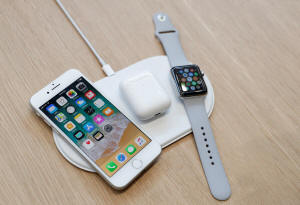|
The
vote confirms an earlier agreement among EU institutions and
will make USB-C connectors used by Android-based devices the EU
standard, forcing Apple to change its charging port for iPhones
and other devices.
Among big providers of electronic devices to European customers,
Apple is expected to be among the most affected, but analysts
also expect a possible positive impact because it could
encourage shoppers to buy the company's latest gadgets instead
of ones without USB-C.
The deal also covers e-readers, ear buds and other technologies,
meaning it may also have an impact on Samsung, Huawei and other
device makers, analysts said.
Apple, Samsung and Huawei were not immediately available for
comments.
Apple has in the past warned that the proposal would hurt
innovation and create a mountain of electronics waste.
EU lawmakers supported the reform with a large majority, with
602 votes in favour and only 13 against.
The change had been discussed for years and was prompted by
complaints from iPhone and Android users about having to switch
to different chargers for their devices.
The European Commission has estimated that the single charger
would save about 250 million euros ($247.3 million) for
consumers.
Half the chargers sold with mobile phones in 2018 had a USB
micro-B connector, while 29% had a USB-C connector and 21% a
Lightning connector, which is used by Apple, a 2019 Commission
study showed.
($1 = 1.0106 euros)
(Reporting by Francesco Guarascio; Editing by Andrew Heavens and
Catherine Evans)
[© 2022 Thomson Reuters. All rights
reserved.]
This material may not be published,
broadcast, rewritten or redistributed.
Thompson Reuters is solely responsible for this content.

|
|





